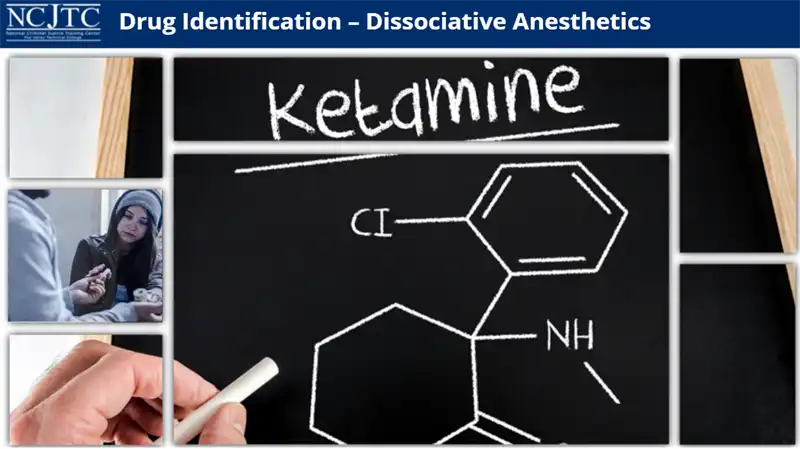Drug Identification and Recognition: Dissociative Anesthetics
Enrollment options
Course Overview: Drug
Identification and Recognition: Dissociative Anesthetics, an eLearning course in a series of Drug Identification
modules, examines two of the most popular dissociative anesthetics,
phencyclidine (also known as PCP) and ketamine. The other courses in this
series include The Opioid Crisis in America; Stimulants, Depressants, Antidepressants and Inhalants and Hallucinogens.
Dissociative anesthetics are a class of drugs that can make users feel detached from reality and their environment and distort how they see the world. These drugs can change the user’s perceptions of sight, sound, taste, smell and feeling. They inhibit pain by cutting off the brain’s perception of pain.
While exploring the chemical composition and physical properties of PCP as well as the dangers involved in the handling and manufacturing of the drug, the course also addresses the following on PCP and ketamine: methods of ingestion, associated paraphernalia, and common street names. Additionally, the content examines the physiological impacts, signs, and symptoms of overdose for both drugs.
Learning Objectives:
- Identify the methods of ingestion, associated paraphernalia, and common street names related to these substances
- Discuss the physiological impacts
- List the signs and symptoms of overdose
- Discuss current trends relating to these substances
- Discuss the dangers involved in handling and manufacturing PCP
- Identify the legitimate medical uses and the legal brand names of Ketamine
Target Audience: Law enforcement, criminal justice professionals, service providers, corrections professionals, court system personnel, social workers, behavioral health/treatment providers, and other community stakeholders.
Cooperative Partners: This tuition-free online training was developed by the National Criminal Justice Training Center of Fox Valley Technical College and was originally supported by cooperative agreement 2017-CK-WXK-007 by the U.S. Department of Justice, Office of Community Oriented Policing Services (COPS).
Learning Hours: 30 minutes including the pre-test and post-test.

